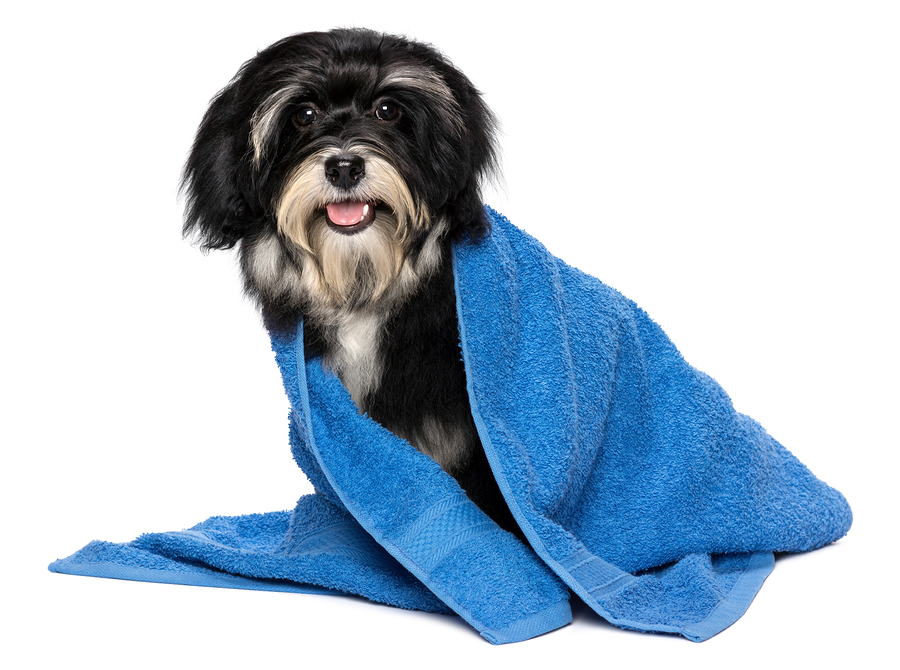- Make It Yourself Lavender Heart-Shaped Bath Bombs!
- 20 Things You Never Knew About “Down There”
- 12 Best Foods For Those Suffering From Arthritis Pain
- 12 Personal Hygiene Mistakes Almost Everyone Makes (Mom Never Told You About #4!)
- 15 Medicinal Plants And Herbs From The Cherokee People
- 12 Mind-Blowing Benefits Of Drinking Coconut Water During Pregnancy
- 12 Outstanding Winter Foods That Won’t Fatten You Up Like A Christmas Turkey
15 Ways Your Home Might Be Poisoning Your Pet (We Never Thought About #9!)

Photo credit: bigstock.com
9. Bathroom Cleaners
If your dog is like ours, it doesn’t mind drinking out of the toilet. However, most bathroom cleaners contain dangerous chemicals that can cause your dog (or cat) serious harm. Many people use those “automatic” bowl cleaners that continually release small amounts of bleach into the toilet. These are terribly dangerous for your dog. Drain openers, glass cleaners, even all-purpose shower and tub cleaners contain more chemicals than any pet can endure. You might get lucky and find that your dog simply vomits a few times. However, there have been reports of dogs being killed when they drank out of a toilet that was cleaned with a name brand toilet bowl cleaner. Use natural products to clean your toilet, such as vinegar and baking soda, because no matter how carefully you try to keep a lid on it, all it takes is one accident to cause harm to your faithful friend.
10. Flea Killing Chemicals
Keeping control of fleas is very difficult for all pet owners. Surveys have shown that at least 50 percent of all families in the US use some type of flea and tick control. Even flea products that list themselves as natural can still be toxic. One particular favorite is a “natural” chemical called d’limonene, which is derived from the peels of citrus fruit and sounds really safe, but the truth is this substance is highly toxic to cats. Flea dips that contain all natural “pyrethrin” can be toxic to some smaller pets. Even overuse of essential oils can be dangerous to cats. Cats cannot metabolize essential oils, which means overuse can become cumulative. Try using electronic flea traps, which are very effective at controlling fleas both indoors and outdoors. You can also try diatomaceous earth to control flea eggs and larvae.
11. Other Pesticides
Besides the flea control pesticides, there are numerous other pesticides used to control everything from flies to mosquitoes to aphids. Pesticides are a danger to every living thing, including human beings, birds, bees, fish, and amphibian wild life. Our pets are often the first ones to come into contact with treated lawns, bushes, and other plants. They inhale them, absorb these toxic chemicals into their skin, and drink water that has been contaminated. Many pesticides have been linked to higher rates of bladder cancer. One research study found that 19 of 25 dogs tested had lawn pesticides in their urine in high amounts. Even if you don’t use pesticides, your neighbors might, and pesticides can drift for at least 50 feet! Do your best to avoid getting your pet contaminated by cleaning their paws after they have been outside. Always choose alternatives to chemical pesticides, and if you have a good relationship with your neighbors, talk to them about the dangers of chemical pesticides.
12. Glycol Ethers
These are another toxic chemical that can be found in many commonly used cleaning products, especially spot removers, carpet cleaners, rug cleaners, upholstery cleaners, and glass cleaners. These cleaners have been linked to lung damage, anemia, and kidney damage in both pets and humans.
13. Laundry Soap
You might think that laundry soap couldn’t possibly matter because it goes in the washing machine and then is rinsed way with the rinse water, right? But there is definitely a residue left on our clothes, pet beds, pet blankets, and pet toys that can be harmful to your dog or cat, especially if they chew on these items. Some of the most popular brands, such as Cheer and Tide, contain toxic ingredients to pets. Use natural, non-toxic pet-safe lines of cleaners and laundry soaps.
14. Ammonia
This strong smelling chemical is used in numerous de-greasing products for cleaning ovens, stainless steel, and glass. Ammonia has a high VOC level, which can mean serious burns to the nasal passages and the mucous membranes of the respiratory system, and can even contribute to asthma. If mixed with bleach, ammonia can create a gas that is deadly to both pets and humans.
15. Chlorine
This is perhaps one of the most commonly used disinfectants around the home. Chlorine is used in automatic dish detergents, toilet bowl cleaners, and bathroom cleaners. Chlorine can cause vomiting, diarrhea, dizziness, and laryngeal edema. You should definitely think twice before letting your pet swim in a pool that contains chlorine. There are many safer alternatives to chlorine for your pool or hot tub. Check at your local home repair store or speak with your pool service person about safer alternatives.
READ ALSO: 12 Plants That Are Toxic to Children and Pets (#12 is Super Popular, Too!)
Although most pet owners will go to great lengths to keep their pets safe, there are plenty of unseen health hazards that can affect our pets if we don’t keep an eye out for them. Keep the health of your pets in mind whenever you purchase anything for your home, no matter how small or insignificant it might seem.
References:
































